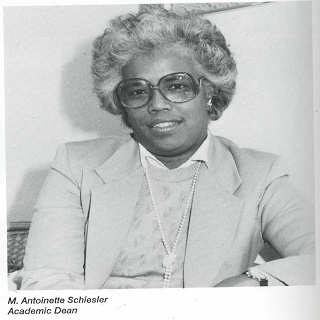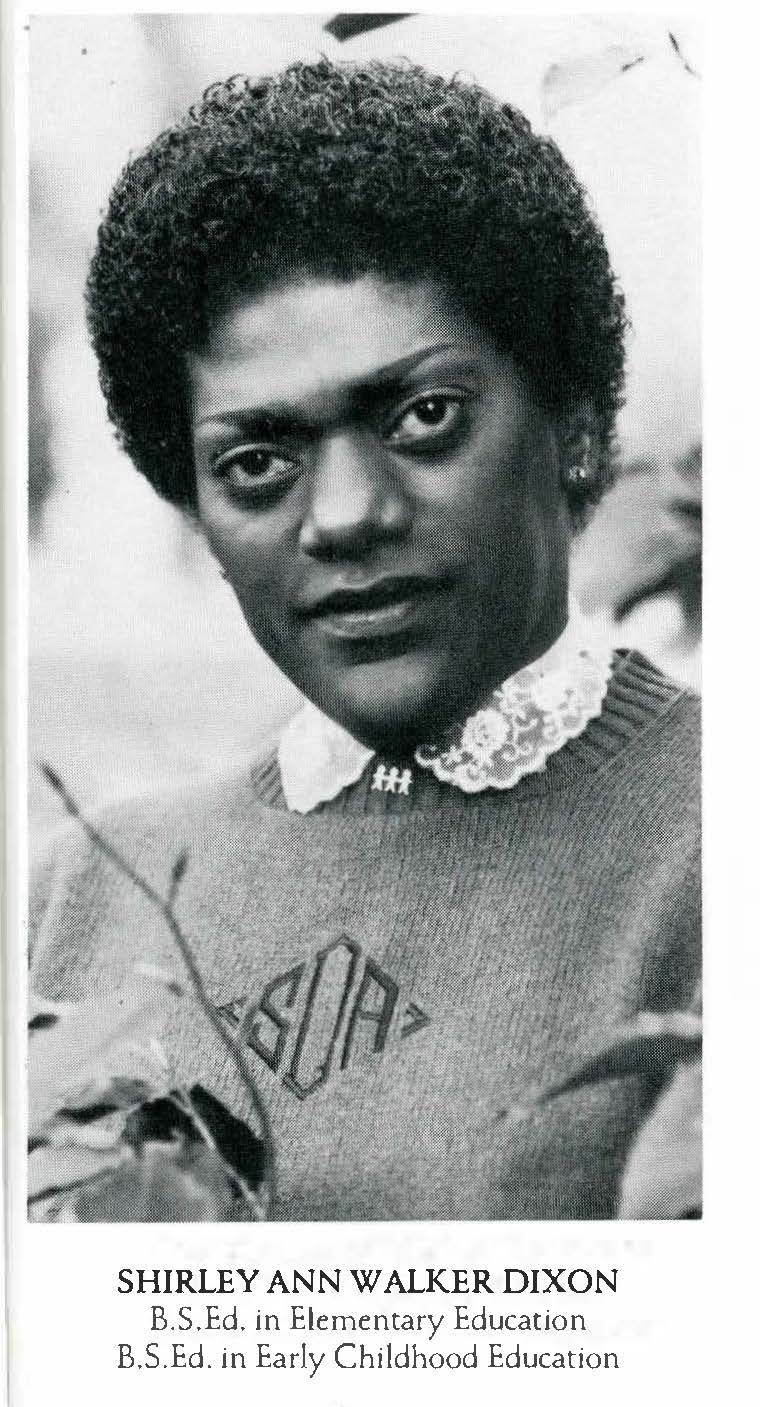The March 10 Common Hour discussion celebrated women leaders who have shaped Cabrini’s past and present, including presidents, deans, and Missionary Sisters of the Sacred Heart of Jesus (MSC). Chioma Ugochukwu, PhD, Provost and Vice President, Academic Affairs, hosted the conversation, saying it was “fitting” to explore the influence of Cabrini’s strong women during Catholic Sisters Week, part of National Women’s History Month.
The Common Hour panel consisted of Sister Christine Baltas, MSC (ʼ66), Campus Ministry Associate; Nancy Costello (ʼ71), Director of Communications, MSC; Vanesa Evers, MFA, Reference, Archives, Electronic Theses and Dissertation Librarian; and Michelle Filling-Brown, PhD, Dean of the School of Humanities and Social Sciences. Ugochukwu called these women contemporary leaders on Cabrini’s campus who inspire young women in their education and faith.
 The group discussed the contributions of the University’s namesake Mother Cabrini and founder Mother Ursula Infante, as well as luminaries like Shirley Dixon (’84, MEd’89, EdD’18) and Antoinette “Toni” Schiesler, PhD, Cabrini’s first Black dean (1989-1993).
The group discussed the contributions of the University’s namesake Mother Cabrini and founder Mother Ursula Infante, as well as luminaries like Shirley Dixon (’84, MEd’89, EdD’18) and Antoinette “Toni” Schiesler, PhD, Cabrini’s first Black dean (1989-1993).
“Religious women leaders are able to see where the needs are greatest,” said Costello as she described Mother Cabrini, who founded the MSCs in 1880, before establishing 67 educational institutions in nine countries. “Mother Cabrini was demanding in a benevolent way.”
Accepted into the convent by Mother Cabrini in 1915 before founding Cabrini College in 1957, Mother Ursula had a similar drive to make a difference in her community, Baltas said.
“Mother Ursula was a woman ahead of her time,” she added, noting how her can-do attitude was instrumental in Cabrini’s founding. “She had to buck Radnor Township, which was zoned to be residential at the time.”
Ugochukwu asked Evers what the Cabrini archives have revealed about women leaders in the University’s history.
“As a Black woman, any time I enter the archives, I’m looking for a diverse group of people,” Evers said. “I make sure I’m showing the underrepresented voices in the archives.”
Scrolling through yearbooks, Evers learned about Schiesler, who served as Dean of Academic Affairs from 1989 to 1993, before her death in 1996.
“Students could look up to her during times of racial turmoil at the University,” Evers said. “A lot of DEI [diversity, equity, and inclusion] initiatives came about while she was here.”
Evers also spotted a photo of a young Dixon in the 1984 yearbook, years before she would be named one  of Philadelphia’s most influential Black women by the city’s NAACP chapter and become a Cabrini Trustee. Cabrini’s Center for Urban Education, Equity, and Inclusion was also founded in honor of the late Dixon.
of Philadelphia’s most influential Black women by the city’s NAACP chapter and become a Cabrini Trustee. Cabrini’s Center for Urban Education, Equity, and Inclusion was also founded in honor of the late Dixon.
In reverence of Cabrini’s women leaders, whose work spans the University’s history, Ugochukwu said their courage was an example to everyone on campus.
Filling-Brown agreed. “The reality is we have leaders everywhere on this campus,” she said. “I believe that leaders are born here and grow here.”
Costello said her formative years at Cabrini came amid national sit-in protests of the Vietnam War. Students “were never told to take a backseat,” she said.
“Cabrini encouraged us to think about those policies and those aspects of campus life that we felt could use revision,” Costello added. “I can’t stress enough how future-thinking the Missionary Sisters were. They were the embodiment of Mother Cabrini.”
Filling-Brown said that legacy is alive today.
“That spirit of Mother Cabrini, who never took no for an answer, becomes instilled in us,” she said. “Women here are valued for their leadership.”
